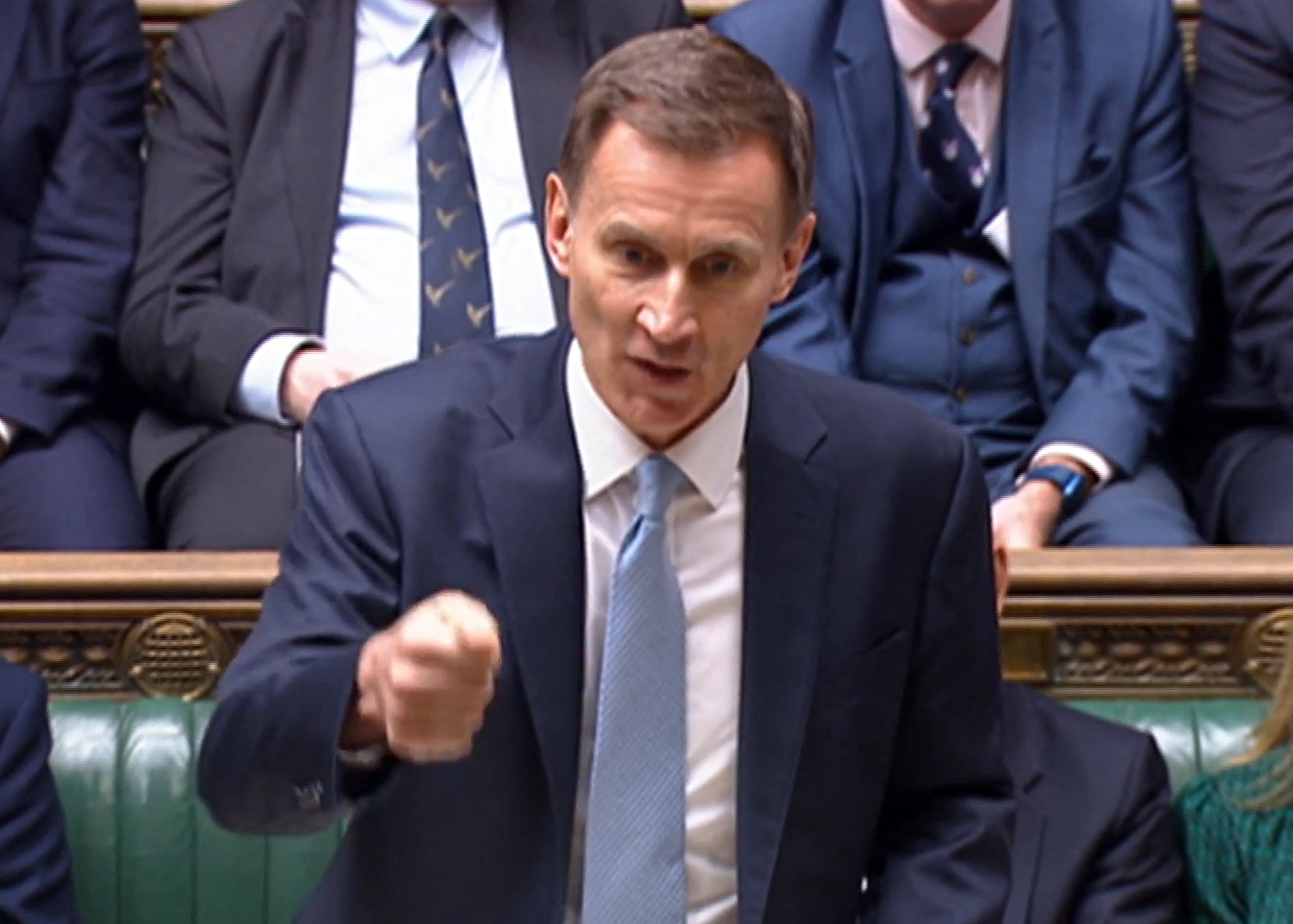Jeremy Hunt’s Budget fuel duty freeze is nothing to celebrate
It is fiscally irresponsible, writes James Moore – grotesquely so. It is also ruinously expensive and terrible for the planet


Chancellor Jeremy Hunt has announced a “freeze” on fuel duty for the 13th year in a row – and I can’t imagine anything worse or more irresponsible. The move – presumably designed to curry favour with the gaz-guzzling Tory voter base – will retain Rishi Sunak’s “temporary” 5p fuel duty cut of 2022 for at least another year.
This is shaping up to be a bad Budget indeed for Britain’s creaking public services. The “freeze” – justified (in part) because oil prices have been ticking up – is the worst of all worlds. It is grossly fiscally irresponsible, environmentally destructive – and will principally benefit people who are already fairly well off.
Let’s start with the first of those: using the projections of the Office for Budgetary Responsibility, the Social Market Foundation – a think tank – has estimated that the total cumulative cost of failing to uprate the duty in line with inflation comes to £100bn in the current fiscal year. This includes lost VAT (which is charged on the fuel you buy and the duty).
That is a quite staggering sum of money. Imagine what £100bn invested in the NHS over a decade could have done? Or in schools with crumbling buildings? How about defence of the realm? That’s a lot of soldiers. Or policemen, if you’re a law and order person. Or, given the news about Birmingham, fewer bankrupt councils. How about a more functional planning system that allows the building of the homes Britain desperately needs? Take your pick. We’re not short of problems.
But while dropping the index-linked rise every year has started to look like a permanent feature of the fiscal landscape, it is still officially branded as a “temporary” measure. Look at the Office for Responsibility’s (OBR’s) revenue projections and you will see that it is dutifully pencilling in an increase and basing its calculations upon that fact.
The measure’s “temporary” nature also means that the chancellor can get away with what is – in effect – an unfunded tax cut. Unfunded tax cuts are not popular things. You may remember what happened when Liz Truss and Kwasi Kwarteng tried out a package of them... their disastrous mini-Budget led to the humiliation of an “idiot premium” being applied to UK government debt, at least temporarily. This was a reflection of the fact that Britain’s lenders no longer trusted the authorities to run its public finances on a sensible (and sustainable) basis.
Hunt, who reversed most of Truss’s measures when ushered in to rescue the country from a looming financial and economic meltdown, once told The Sunday Times that she was right to want to grow the economy, but wrong in failing to ensure her tax cuts were properly funded. And yet everyone seems more or less okay with an unfunded fuel duty cut. And a cut is what this is, in real terms.
So much for the fiscal side of the equation. The measure is also environmentally destructive. There is a long established principle that “the polluter pays” (or, at least, they should do). Fuel duty, were it to have risen in line with inflation, ensures that is the case. If you’re wealthy enough to drive a big, gas-guzzling car, you should pay for doing so.
If, by contrast, you choose to drive a smaller and/or more fuel efficient vehicle that pollutes less, you will pay less. Clearly, the “freeze” benefits wealthy drivers of petrol hungry motors the most.
Which brings us to the final problem: the narrative of this helping “ordinary working families”. The latter is clearly overstated when this measure is of most benefit to wealthy drivers of big, fuel inefficient tanks. The “Kensington taxis”, as it were; which is a reference to those huge SUVs there is no real need for in London. They can, nonetheless, be found all over the royal borough.
Consider too that the ordinary working families both parties claim to support – Labour has been equally shameful in talking about sticking with this regressive tax break – would clearly also benefit from being able to see the GP without having to endure a two-week wait for just a phone appointment and from being able to send their kids to a school that isn’t falling apart. There are better things to focus on saving, in other words.
The money from the fuel duty “freeze” would go some way towards funding both of those vital services. As it is, the OBR’s projections suggest that we are going to endure another brutal round of austerity, something which looks more and more like a scorched earthed policy applied to Britain’s fraying public services.
Cards on the table: the fuel duty “freeze” is perhaps the worst tax “cut” yet. A rethink is long overdue.
Join our commenting forum
Join thought-provoking conversations, follow other Independent readers and see their replies
Comments
Bookmark popover
Removed from bookmarks